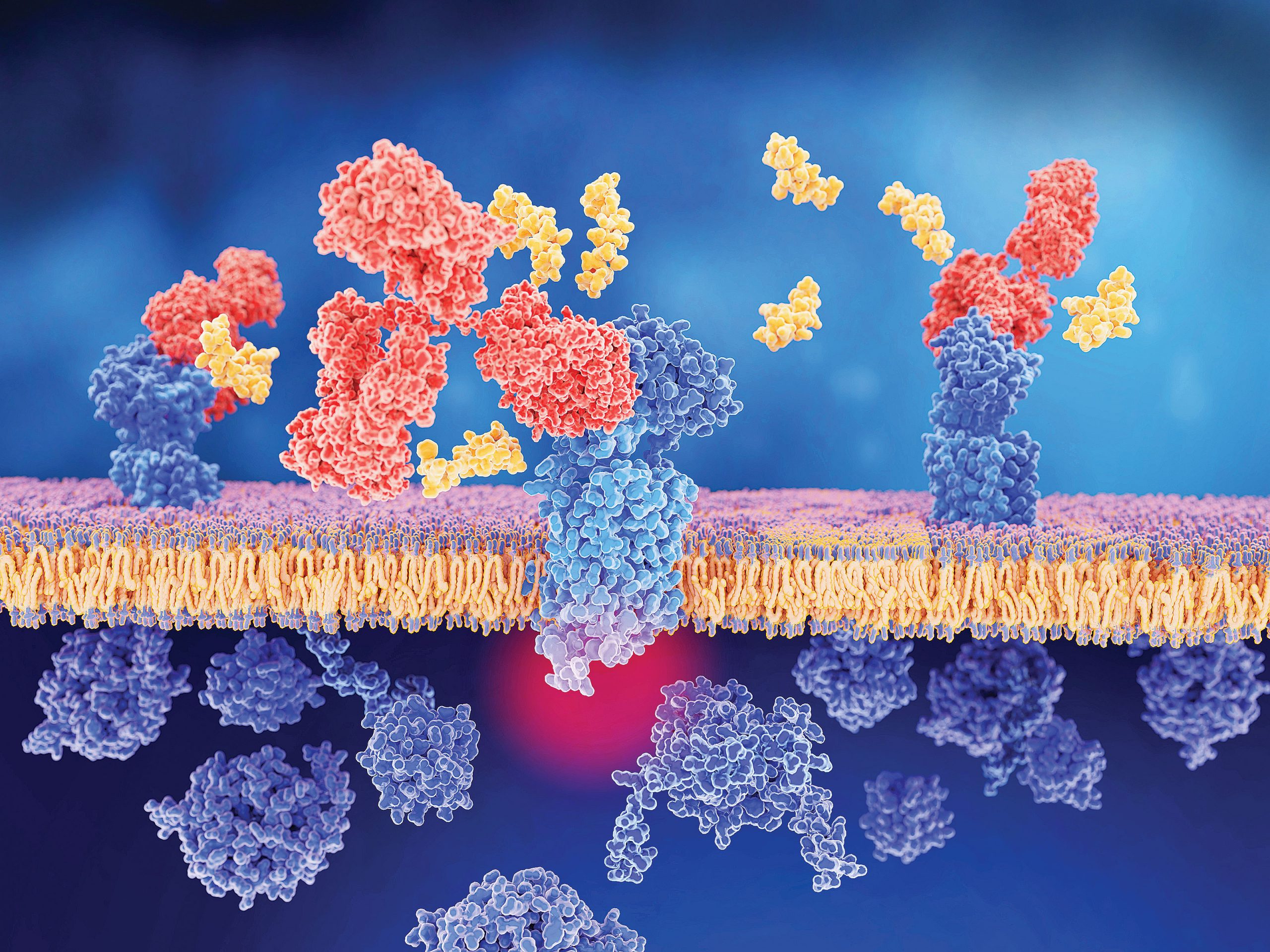CD38 protein, which was discovered in 1980, is a type II transmembrane glycoprotein with a size of 46 kDa. The ligand of CD38 is CD31, also known as PECAM-1, which is a member of the Ig gene superfamily. CD31 is expressed not only in endothelial cells, but also in lymphoid cells (thecal B cells and plasma cells), lung (alveolar duct, alveolar and lymphatic vessels) and kidney (glomerular cells). The interaction between CD38 and ligand CD31 plays an important role in regulating cell migration, receptor-mediated adhesion and signal transduction.
In addition, CD38 protein is also a bifunctional extracellular enzyme, which has the activity of cyclase and hydrolase, and participates in nucleotide metabolism. CD38 uses NAD+ as a substrate to form cyclic ADP ribose (cADPR) and ADPR. These nucleotide metabolites are effective second messengers that regulate the mobilization of Ca2+ in the cytoplasm and activate signaling pathways that control various biological processes, such as lymphocyte proliferation, insulin secretion by pancreatic B cells, and so on. Other studies have shown that the production of CD38-dependent adenosine also plays a key role in immunosuppression mediated by natural killer (NK) cells.
In general, CD38 is expressed at a low level in normal lymphoid cells and myeloid cells, as well as in non-hematopoietic tissues, while it is widely expressed in cells of hematopoietic stem cells (HSCs). Because CD38 is expressed in B cells, the expression level of CD38 in plasma cells (also known as effector B cells) is particularly high.
The expression of CD38 is associated with a variety of diseases, including AIDS, autoimmune diseases (such as systemic lupus erythematosus), type 2 diabetes, osteoporosis and cancer. It has been found that CD38 is highly expressed in a large number of malignant hematological cancers, especially in multiple myeloma, which makes CD38 a target for the development of therapeutic antibody drugs for multiple myeloma.
The study of monoclonal antibodies targeting CD38 began in 1990. Worldwide, two CD38 mAbs have been approved for sale, the daratumumab developed by Janssen Pharmaceuticals and the isatuximab developed by Sanofi, which provide new treatment options for patients with multiple myeloma.
It has been found that CD38 antibodies kill tumor cells mainly through Fc-dependent immune effects, including complement-dependent cytotoxicity (CDC), Antibody-dependent cellular cytotoxicity (ADCC), Antibody-dependent Cellular Phagocytosis (ADCP) and apoptosis. CD38 antibody also can improve host anti-tumor immunity by eliminating suppressor cells of regulatory T cells, regulatory B cells and medullary source.

